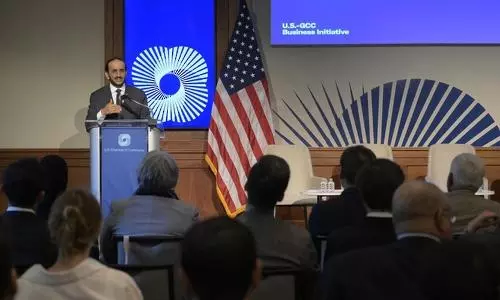
Ending impasse a reason for triumph?
text_fieldsIndia and the United States has recently solved the disagreement over the stockpiling of food by the Indian government ending the uncertainty that had paralysed the World Trade Organisation and risking derailing a $ 1 trillion package of reforms of global customs procedures.
The G20 summit is currently going on in Brisbane and the agreement on the food subsidies between the two nations will hopefully ease Prime Minister Modi’s bilateral meetings. The agreement paves the way for full implementation of the WTO’s Trade Facilitation Agreement (TFA) and is the first multilateral trade agreement to be concluded in the history of the WTO. Resolution of the dispute is expected to boost the world trade that is essential for growth and generating employment. Minister of State for Commerce and Industry Nirmala Sitharaman said that with the US agreeing to India’s right to food security, the pact was in favour of India and that it would nullify the imperfections in the previous Bali Ministerial package. U.S Trade Representative Michael Froman also released a statement which said the agreement with India reflected shared understandings regarding the WTO’s work on food security. The latest move is at the same time a breakthrough as well as a reason to ponder.
As per the agreement that came into effect on November 13, the frozen Trade Facilitation Agreement would be resumed. The pact also says that for the food security schemes to function smoothly, the WTO shouldn’t intervene in the matter of India’s food stocking and subsidies. India had objected to a four-year limit on a so-called "peace clause" that protected developing nations from being punished if they breached the WTO's cap on food subsidies. The earlier ‘Bali Package’ liberalised international trade norms and allow developing countries like India to continue offering subsidies for their food procurement program. Sharma had called the issue ‘fundamental’ saying that India would never compromise in the matter.
The customs procedures and the trade policies will have to be amended in the favour of the global corporates if the TFA is implemented. With the world bank dolling out a mere three crore dollars among the hundred countries, the developing nations including India will have to make things easy for the powerful nations and the corporates by using up the public development funds allocated for health, education and other sectors. According to the pact signed, US had allowed to continue the agricultural subsidies for the farmers. US provide six times more subsidy to the citizens than India. A reduction in the consumption of American goods is one of the main reasons for denying India’s subsidy. A collective effort of all the nations is required to strike back against the obstinate developed nations. The government should not compromise the food security at any cost and the TFA policies causing injustice and exploitation should be eliminated.

















